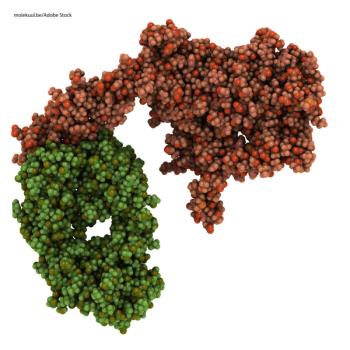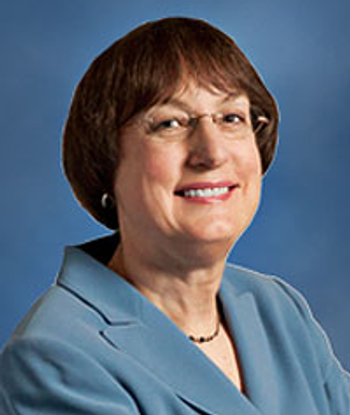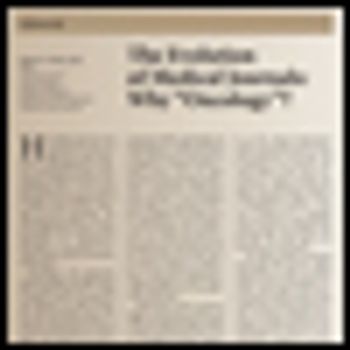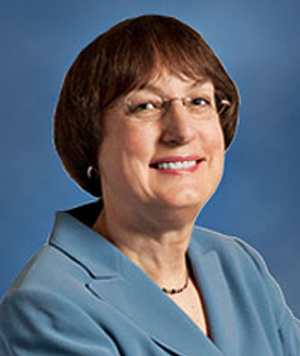
Experts provide perspective on the rapidly changing landscape of targeted therapies in breast cancer treatment, and the importance of matching the right agent with the right patient.

Your AI-Trained Oncology Knowledge Connection!


Experts provide perspective on the rapidly changing landscape of targeted therapies in breast cancer treatment, and the importance of matching the right agent with the right patient.

In this article, we provide a case-based expert opinion on the duration of extended adjuvant endocrine therapy, use of biomarkers in guiding this decision, and toxicities to be considered when recommending this treatment.

In this interview with ONCOLOGY Editor-in-Chief Nancy Davidson, MD, we dive into the “gray area” of breast biopsies and how the oncology community can meet this challenge. Dr. Davidson, AACR’s president-elect, also discusses the changes she has seen during her career with regard to how cancer patients are treated and looks forward during this optimistic time in treatment and research.

In this Circling Back feature, authors of the review article “Adjuvant Endocrine Therapy for Breast Cancer: How Long Is Long Enough?” discuss some of the especially interesting points made in the commentaries.

New evidence now supports improved recurrence and breast cancer mortality outcomes with continued tamoxifen for up to 10 years in women of any age, and such long-duration therapy is especially important for women who remain premenopausal after their first 5 years of tamoxifen.

Last month brought the accelerated approval by the US Food and Drug Administration (FDA) of a fourth agent targeting the human epidermal growth factor receptor 2 (HER2) oncogene product: TDM-1 (Kadcyla), a conjugate of trastuzumab and a cytotoxic, emtansine.

While ONCOLOGY has continued to evolve along with the field of oncology-for example, it now addresses critical issues of science and socioeconomics-it has remained true to the founding principles. Perhaps largely for this reason, the journal continues to be widely read across the entire oncology community.

In 2004, Dr. Leisha Emens and I reviewed the use of trastuzumab (Herceptin), the monoclonal antibody directed against the HER2 protein, in the treatment of breast cancer.

I began practice as a medical oncologist in 1986, and like the journal ONCOLOGY, I am celebrating my 25th year in the field.

In this issue of ONCOLOGY we honor and celebrate the career and contributions of Martin D. Abeloff, MD, who died last year. Marty saw his first patient with breast cancer in 1972 and cared for his last such patient shortly before his death in 2007.

Over a 30-year period in the20th century, human flightevolved from the propeller tothe jet engine and then managed tosend us to the moon and back. Thechanges over the past 30 years in ourunderstanding of the biology of breastcancer and its application to treatmentare no less startling. Since 1975, wehave witnessed an astounding evolutionin our strategies to prevent,[1]diagnose,[2] and manage[3] a diseasethat affects the lives of so many in theUnited States[4] and around theworld.[5] These efforts have generatedmany headlines and an occasionalstumble. Nonetheless, they have hada dramatic impact on the lives of millionsof people, and it is hoped thatthe rate of improvement will furtheraccelerate in years to come.

Trastuzumab (Herceptin) is a therapeutic monoclonal antibody specificfor the human epidermal growth factor receptor type 2 (HER2), acell-surface tyrosine kinase receptor overexpressed by 25% to 30% ofbreast cancers. The drug is now regarded as one option for standardtherapy in HER2-overexpressing metastatic breast cancers. It is associatedwith a moderate response rate as a single agent, and in combinationwith standard chemotherapy, can produce greater response ratesand prolong the survival of women with advanced breast cancer. Itsactivity in metastatic breast cancer has led to active clinical trials examiningits potential role in the neoadjuvant and adjuvant settings.The successful clinical development of trastuzumab provides furtherproof of principle that biologically targeted therapies can have a profoundimpact on the management of breast cancer. Here we review theclinical development of this novel agent, emphasizing the potential fortherapeutic synergy when trastuzumab is combined with both standardchemotherapy and innovative molecularly targeted and biologic agents.

The aromatase inhibitors are regarded as standard approaches tofirst- or second-line endocrine therapy in women with hormoneresponsivemetastatic breast cancer. Their efficacy and apparent lackof toxicity have led to their evaluation as adjuvant therapy. Althoughinitial results with these agents in early breast cancer are promising,our collective long-term experience documenting tamoxifen’s benefitsand our uncertainty about the long-term effects of aromatase inhibitorssuggest that it is too early to recommend their routine use in theadjuvant setting. However, anastrozole is also a reasonable therapeuticoption in the adjuvant setting, particularly in individuals with acontraindication to tamoxifen such as those with thromboembolicdisease or those who develop breast cancer while receiving tamoxifenor raloxifene (Evista) therapy. Anastrozole (Arimidex) was recentlyapproved by the Food and Drug Administration for the adjuvanttreatment of postmenopausal women with hormone-receptor–positiveearly breast cancer. Ongoing trials are assessing the potential role ofaromatase inhibitors in the adjuvant, neoadjuvant, and preventivesettings.

Despite nearly 20 years of study, the importance of chemotherapy dose intensity in breast cancer remains unclear. Substantial preclinical data suggest a dose-response relationship, and consistent data document that

The premise that early diagnosis of certain types of malignancies improves outcome and survival is a cornerstone of modern medicine. Routine use of the Pap smear has been associated with reduced mortality from cervical cancer. Randomized trials

Published: October 1st 2000 | Updated:

Published: August 1st 2004 | Updated:

Published: May 2nd 2008 | Updated:

Published: January 16th 2014 | Updated:

Published: June 1st 2001 | Updated:

Published: May 1st 2011 | Updated: